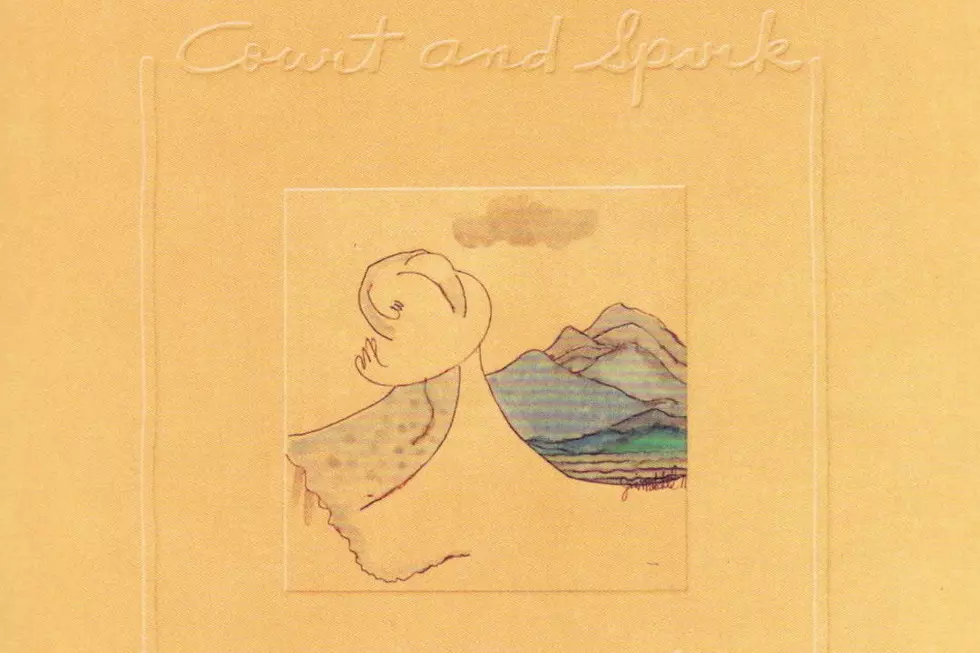
How Joni Mitchell’s Career Turned With the Jazzy ‘Court and Spark’
"They're going to crucify you for staying the same. If you change, they're going to crucify you for changing. But staying the same is boring. And change is interesting. So of the two options, I'd rather be crucified for changing."
When Joni Mitchell gave that quote to Rolling Stone in 1979, she was reflecting on a recent commercial lull. Even at her sales peak, however, she remained in consistent creative motion.
Case in point is Court and Spark, which found Mitchell experimenting with a more jazz-tinged sound while continuing to delve into the confessional songwriting that helped fuel her rise to prominence.
Released on Jan. 17, 1974, Court and Spark broke a two-year recording gap for Mitchell – a hiatus that hardly seems like anything at all today, but at the time it represented the longest absence in her six-album career. As it turned out, she'd been putting her time away to good use: Joni Mitchell spent a large portion of 1973 in the studio with a coterie of talented musicians that included famous rockers like David Crosby, Graham Nash and Robbie Robertson, as well as jazz stars such as Tom Scott, Larry Carlton and Joe Sample.
The resulting 11-track set of songs proved the right release at the right time, selling more than two million copies and spawning "Help Me," Mitchell's first (and, to date, only) Top 10 single. Other album highlights included "Raised on Robbery," which peaked at No. 65, and "Free Man in Paris," which would ultimately become one of Mitchell's signature compositions.
Listen to Joni Mitchell Perform 'Help Me'
In fact, Court and Spark proved so successful that Mitchell ended up releasing a live album from her 1974 tour, titled Miles of Aisles, before the year was out. It contained a hit single of its own, a live version of her 1970 single "Big Yellow Taxi" that went on to break the Top 30.
That kind of success is difficult to duplicate, and although Mitchell enjoyed consistently strong sales for the remainder of the decade, subsequent releases found her moving further from the zeitgeist, challenging her audience's expectations to a greater degree and paying the price with dwindling sales. By 1979, she understood what it meant to be artistically "crucified," as she put it – but she'd also earned the "legendary" appellation the magazine gave her in the article's headline.
In fact, the success of Spark helped insulate Mitchell from having to worry about sales at all. She'd always claimed she didn't make music for the money, but those double-platinum years came in handy when her muse took her into more esoteric areas on albums like Don Juan's Reckless Daughter and Mingus.
Today, the Court and Spark period remains one of the most influential in a very distinguished career, yielding artistic riches that continue to influence younger artists and cement Joni Mitchell's status as a groundbreaking songwriter and recording artist.
See Joni Mitchell Among the Top 100 Live Albums
More From Ultimate Classic Rock









